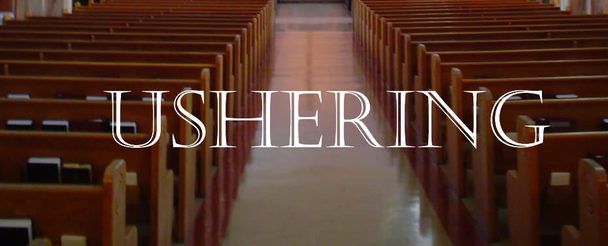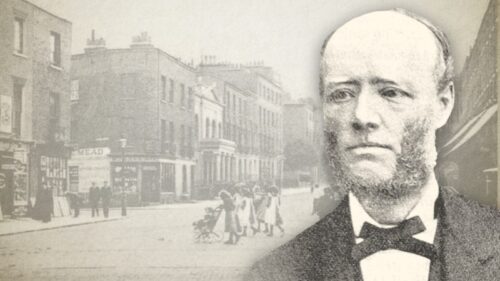Church Leadership & Roles: What the Bible Teaches
Every biblical church operates with both order and purpose. From the pulpit to the pews, God has laid out instructions in His Word for how a local church should function. While pastors and deacons often receive attention in discussions of leadership, many overlook the vital and practical roles that make up the life of a healthy congregation. This post explores those responsibilities especially the role of the usher and also explains the church ordinances that Jesus Christ gave to every Bible-believing congregation.
Ushers: The Doorkeepers of God’s House
Psalm 84:10 declares, “I had rather be a doorkeeper in the house of my God, than to dwell in the tents of wickedness.” An usher is not just a volunteer—they are the first line of ministry to those entering the church. In the Old Testament, porters were chosen Levites who were responsible for greeting, guarding, and guiding those entering the temple (1 Chronicles 9:22-27). In the New Testament church, the usher functions in much the same way.
What Makes a Great Usher?
-
Appearance: Ushers should be clean, modest, and formal in their attire—reflecting the dignity of the office. Their clothing should honor the Lord and set a reverent tone.
-
Punctuality: Ushers should arrive early and be prepared. Like Samuel opening the doors of the tabernacle (1 Samuel 3:15), they should be ready to welcome others before services begin.
-
Knowledgeable Service: They should know the church layout, understand the order of service, and be aware of people’s needs. A wise usher learns the names of members and visitors alike.
-
Helpfulness: True ushers embody the gift of “helps” (1 Corinthians 12:28). They assist with logistics, emergencies, and serve others with gladness.
-
Warm Hospitality: Ushers are called to be friendly and proactive. Like the father of the prodigal son (Luke 15:20), a good usher greets people with joy and personal warmth.
-
Watchfulness: Jesus instructed the porter to “watch” (Mark 13:34). An usher is not idle—they are attentive to the needs and well-being of everyone in the building.
Whether helping a family find a seat or ensuring the church remains a safe and peaceful place, an usher’s role cannot be underestimated. He represents the spirit of the church and must reflect the love of Christ (Matthew 25:40).
Biblical Church Ordinances: Baptism and the Lord’s Supper
In addition to its roles and structure, the church has been given two clear ordinances by the Lord Jesus: baptism and the Lord’s Supper. These are not optional traditions, but divine commands that must be followed with care and clarity.
Baptism
-
Commanded by Christ: Baptism is the first step of obedience after salvation (Matthew 28:19).
-
Symbolic Act: It represents the death, burial, and resurrection of Jesus (Romans 6:3-5).
-
Believer’s Baptism: Only those who have made a personal profession of faith in Christ should be baptized. Infants and unbelievers are not biblical candidates.
-
By Immersion: The scriptural mode of baptism is full immersion—not sprinkling or pouring—because only immersion pictures burial and resurrection.
-
Church Authority: Baptism is not a personal ritual but a church ordinance. It should be performed under the authority of a local New Testament church.
The Lord’s Supper
-
Instituted by Christ: Jesus gave the ordinance of communion on the night He was betrayed (1 Corinthians 11:23-26).
-
Symbol of Remembrance: The bread and the cup are not the literal body and blood of Jesus, but symbols meant to remind us of His sacrifice.
-
Restricted to Believers: Only saved, baptized believers should partake—and they should examine themselves first (1 Corinthians 11:28-29).
-
Local Church Practice: Communion should be observed by each local congregation in reverence and unity.
Unity in Function, Diversity in Roles
God has given every believer a place in the local church. Romans 12 and 1 Corinthians 12 teach that the church is a body with many members. While pastors lead and teach, deacons serve and assist, and ushers welcome and guide every member is needed.
Let us remember that true biblical leadership is not about position or prestige, it is about serving in love (Galatians 5:13). Whether greeting a guest at the door or baptizing a new believer, every act done for the glory of Christ is valuable in God’s sight.
Ephesians 4:16 (KJV)
“From whom the whole body fitly joined together and compacted by that which every joint supplieth... maketh increase of the body unto the edifying of itself in love.”


 Edward Mote is best remembered for writing the cherished hymn “My Hope Is Built on Nothing Less,” a powerful declaration of trust in Jesus Christ. …
Edward Mote is best remembered for writing the cherished hymn “My Hope Is Built on Nothing Less,” a powerful declaration of trust in Jesus Christ. …
No comments yet. Be the first to share your thoughts!